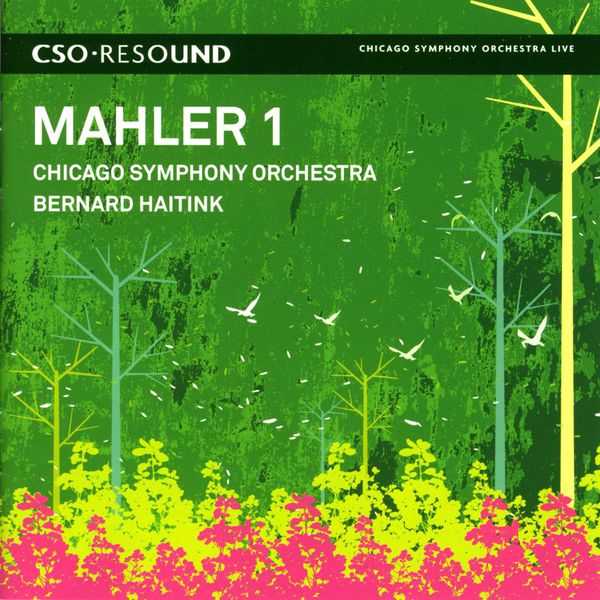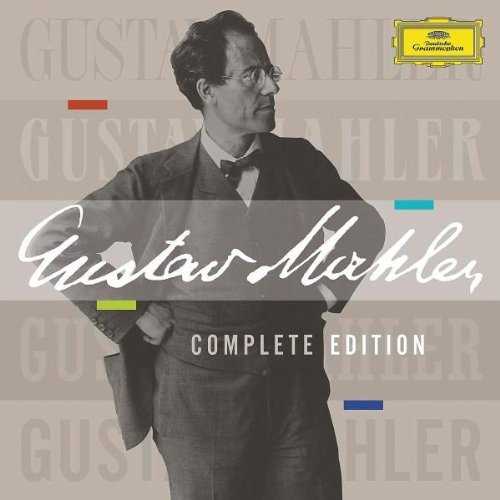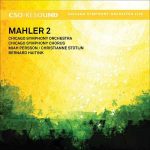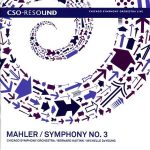
Composer: Gustav Mahler
Orchestra: Chicago Symphony Orchestra
Conductor: Bernard Haitink
Format: FLAC (tracks)
Label: CSO Resound
Catalogue: CSOR901902
Release: 2009
Size: 210 MB
Recovery: +3%
Scan: yes
Symphony No. 1 in D major ‘Titan’
01. I. Langsam, schleppend
02. II. Kraftig bewegt, doch nicht zu schnell
03. III. Feierlich und gemessen, ohne zu schleppen
04. IV. Sturmisch bewegt
An expert interpreter of Mahler’s symphonies, CSO Principal Conductor Bernard Haitink leads the triumphant First Symphony.This release coincides with Haitink’s 80th birthday. Happy Birthday Bernard!
According to the Chicago Tribune, “Haitink’s reading was warmly expansive and beautifully played.” The Chicago Sun-Times noted, “Haitink and the CSO demonstrated confidence, vigor and ease…and brought the capacity crowd to its feet for a five-minute series of ovations.” A musical force in Chicago and around the world, the Chicago Symphony Orchestra is consistently hailed as one of the finest international orchestras. Its expansive catalogue of more than 900 recordings has earned 58 Grammy Awards-more than any other orchestra in the world. In 2007, the CSO launched its in-house record label, CSO Resound. Featuring live concert performances by the CSO with world-class conductors and guest artists, CSO Resound showcases the power and versatility of the Chicago Symphony Orchestra today.
“Haitink’s baton barely had to quiver for the Chicago Symphony Orchestra to unfurl textures of gossamer, satin, and down.” The New Yorker
“Plenty of other conductors have brought us the Chicago Symphony Orchestra as a virtuoso band. Haitink has shown us what fine musicians they all are.” Financial Times
For all its obvious fine points, Bernard Haitink’s 2008 SACD of Gustav Mahler’s Symphony No. 1 in D major presents a by-the-book reading that is quite comparable to many other good recordings, but it is not exceptional in any way that would impress aficionados. The Chicago Symphony Orchestra’s live playing is technically clean and accurate and expressively spot-on, and Haitink’s control of the piece’s emotional highs and lows is admirable, especially because Mahler’s histrionics in the Finale can get out of control with lesser conductors. The pacing of the symphony is also handled well, and Haitink observes accepted tempos, with only a little dragging of the beat in a few spots. Where Haitink differs from many of his contemporaries is in his choice to play the symphony in its published form, and to eschew the rejected “Blumine” movement that trendy conductors frequently insert between the first movement and the scherzo. The symphony works best without the interruption, and Haitink’s choice is the right one. Other than that, this performance is as regular and routine as can be found, and it is certainly pleasurable in the luscious reproduction provided by CSO Resound. But because it lacks the spark or extra flair that would put it a cut above its competition, most listeners familiar with this work will find this recording perfectly acceptable but nothing to get excited about.



